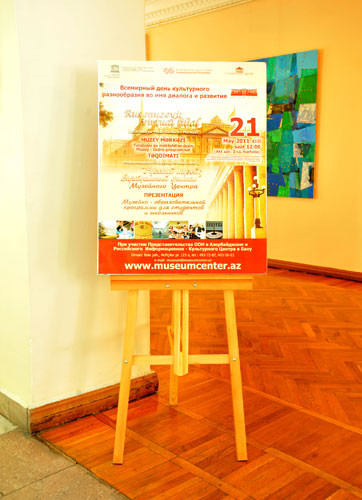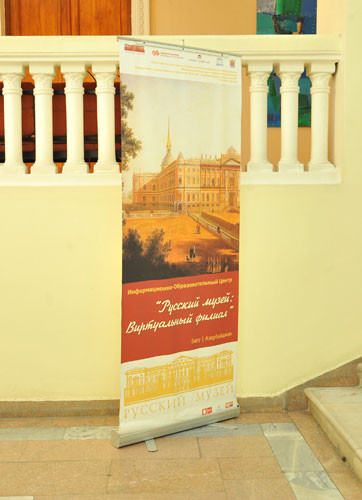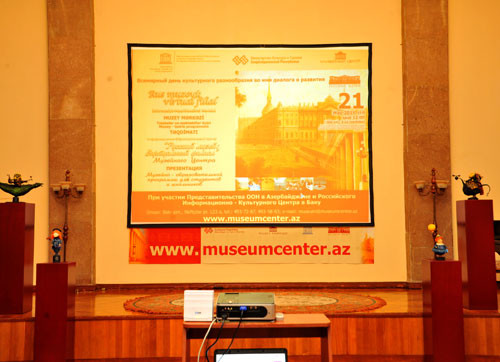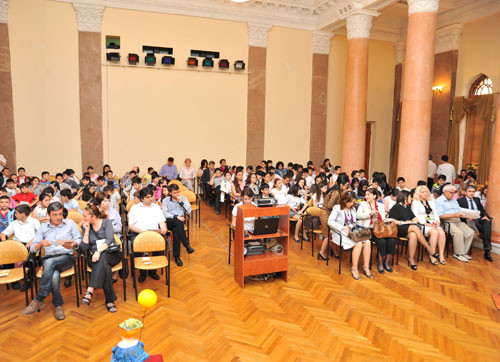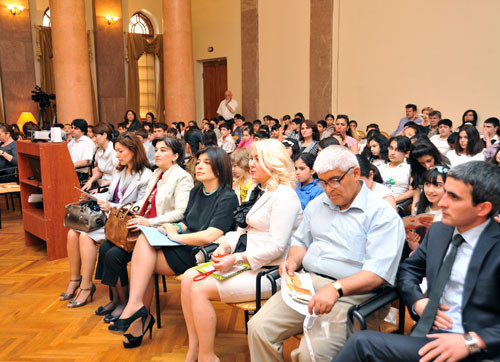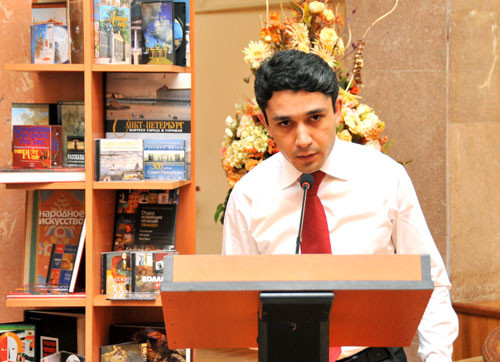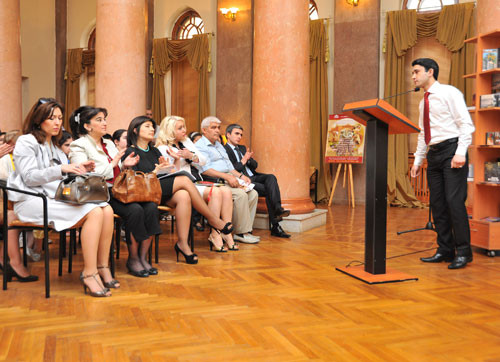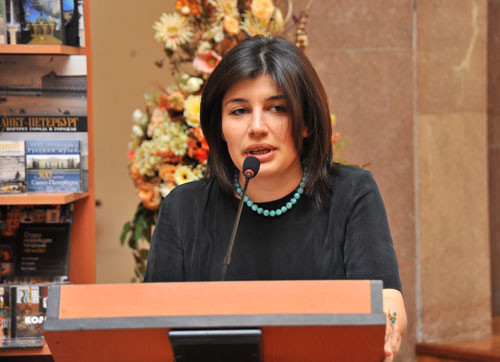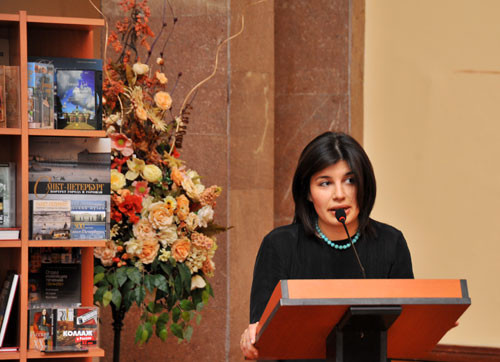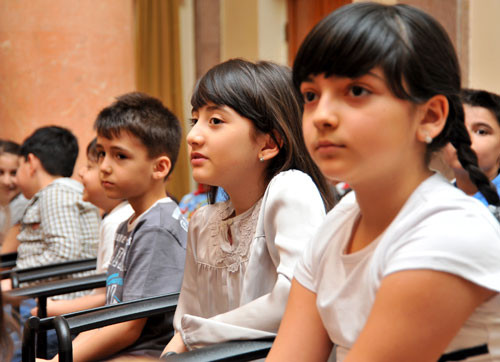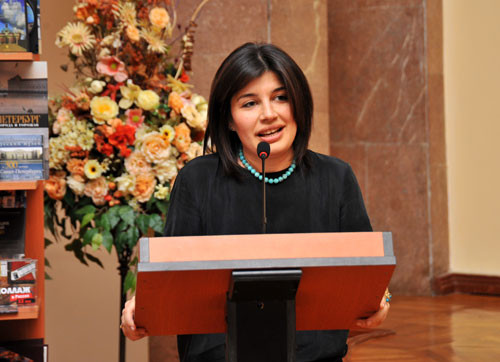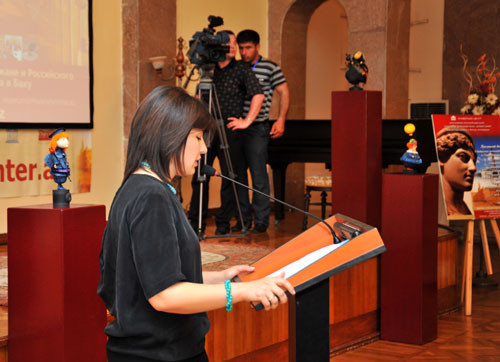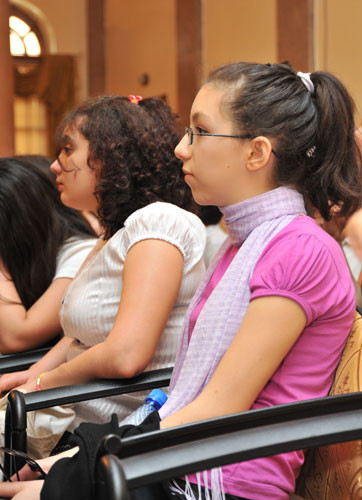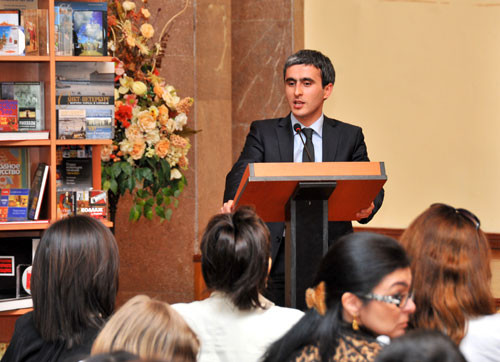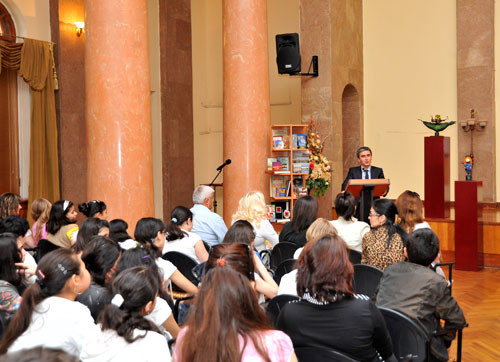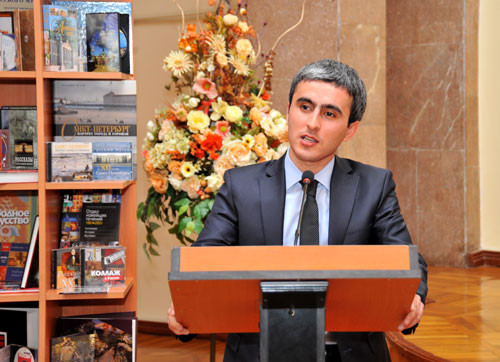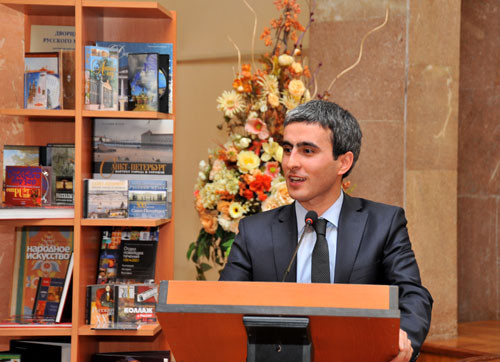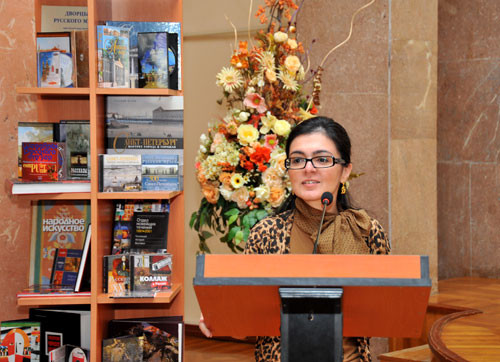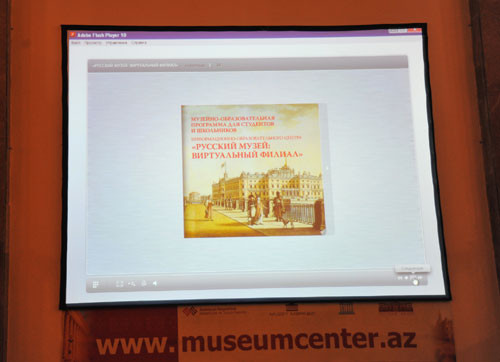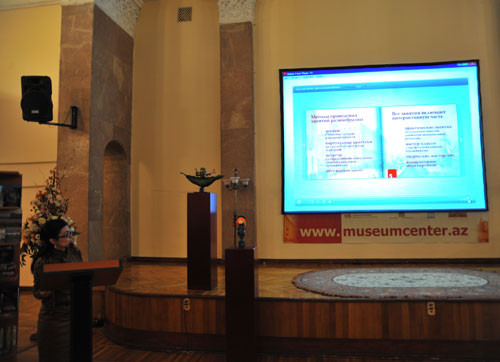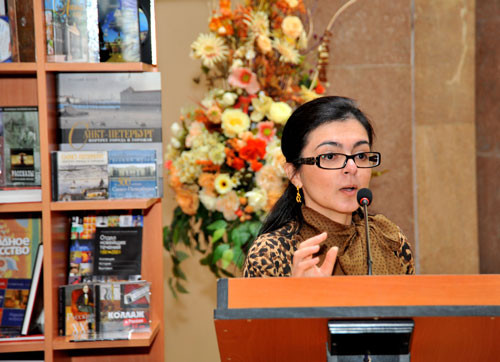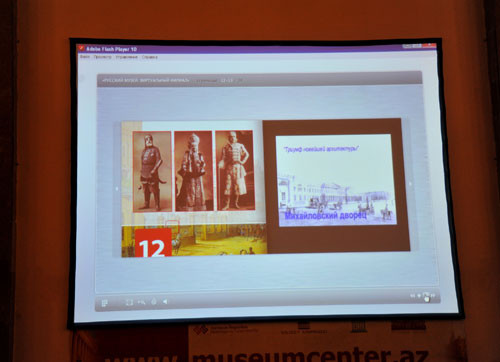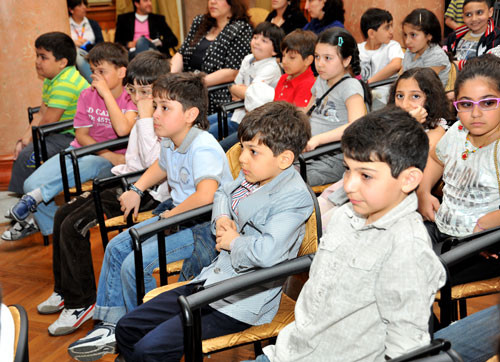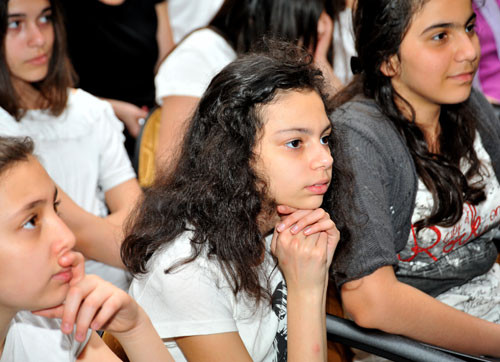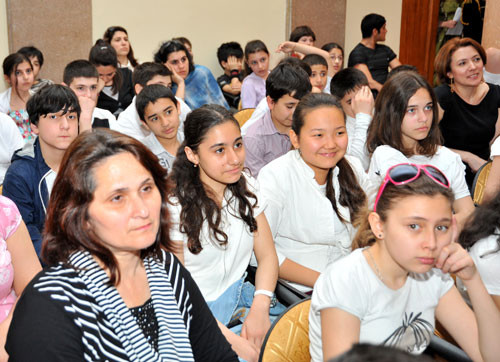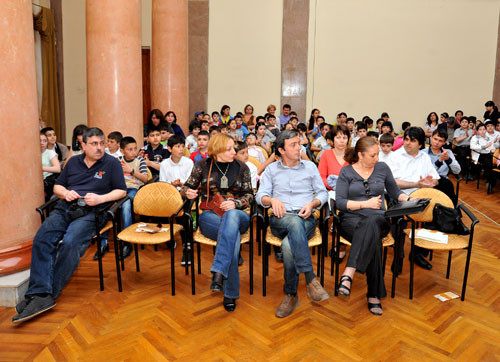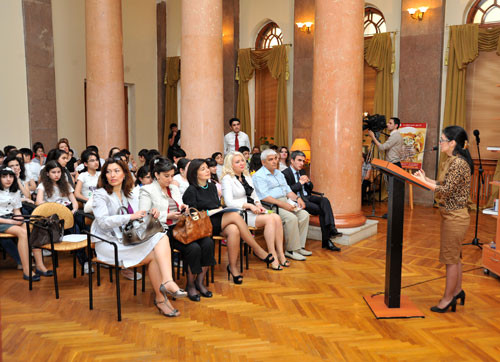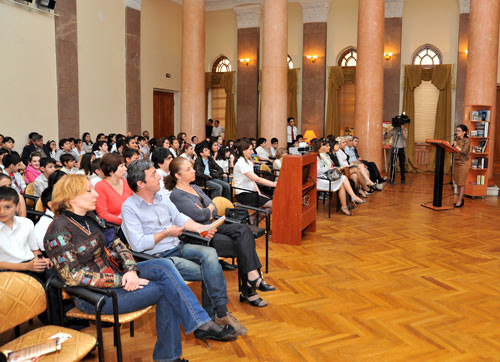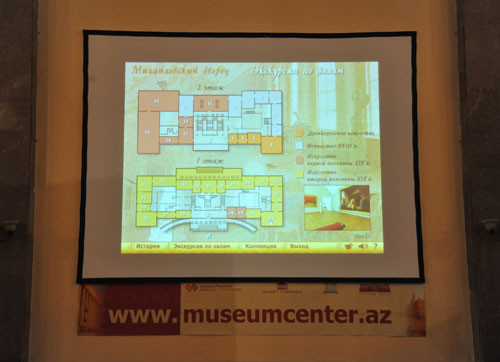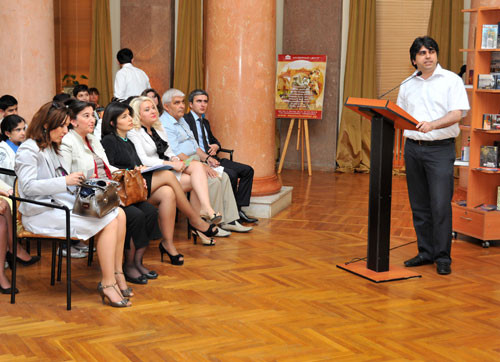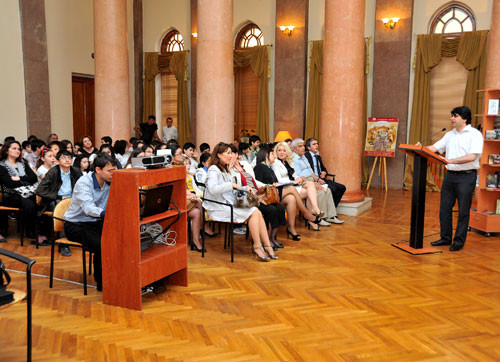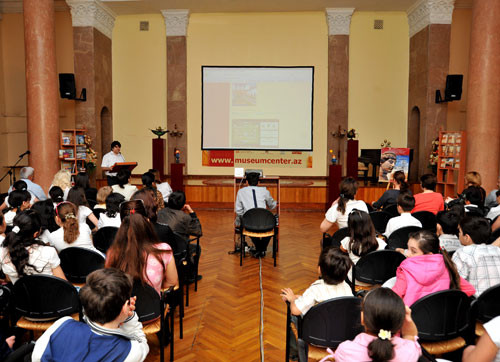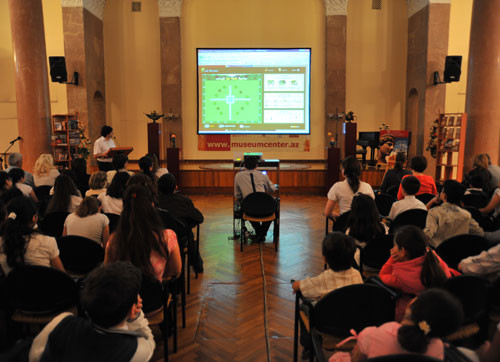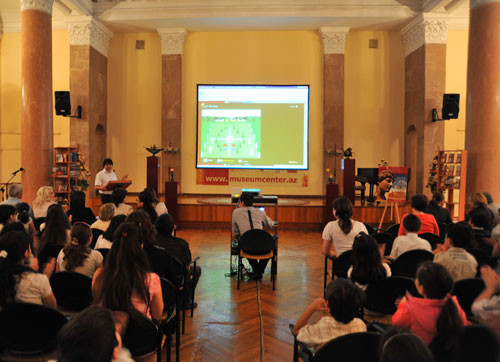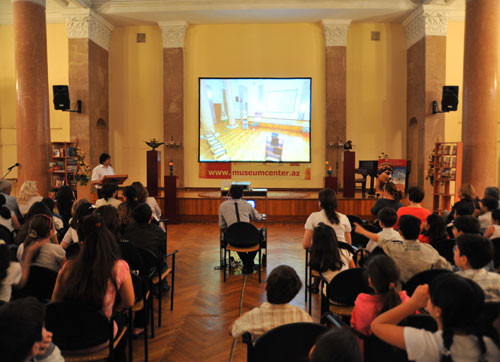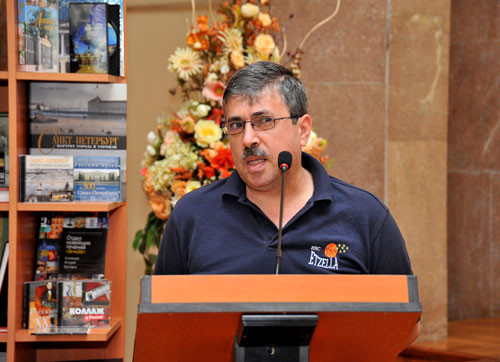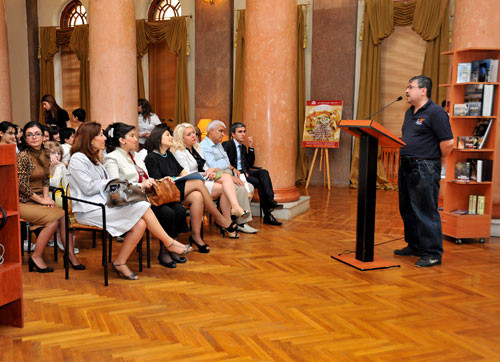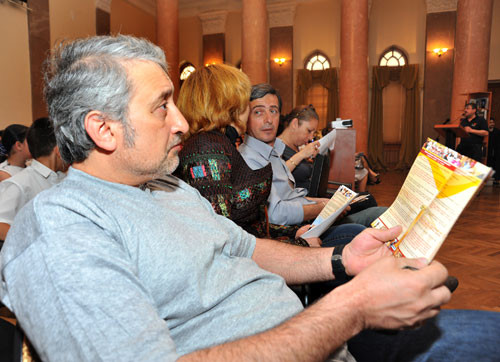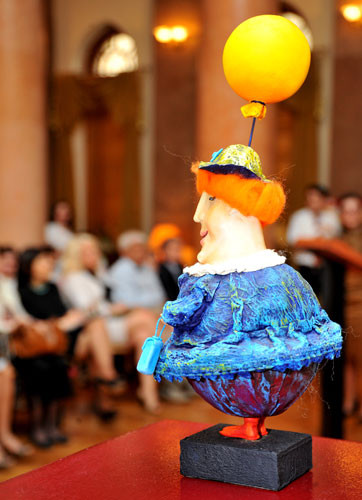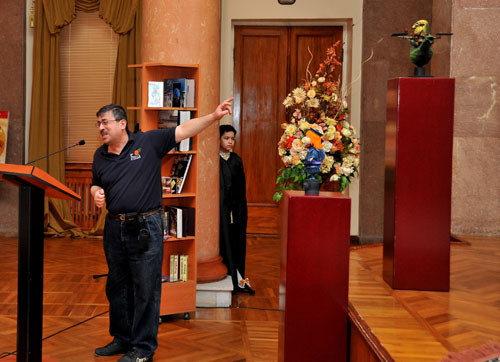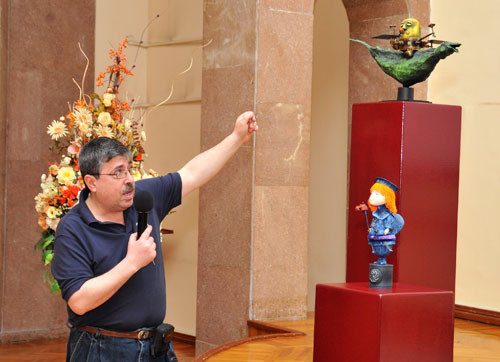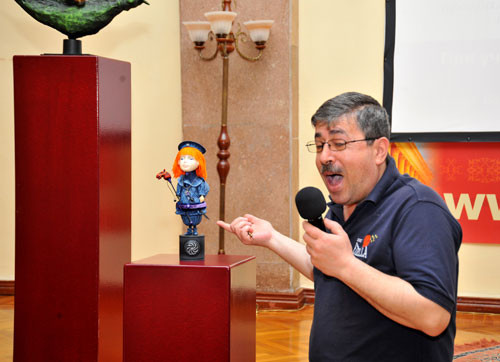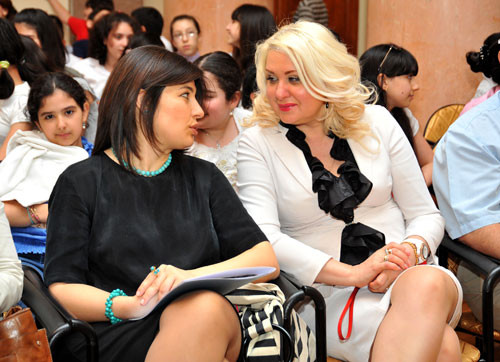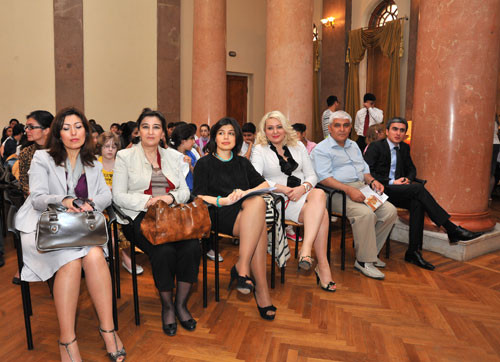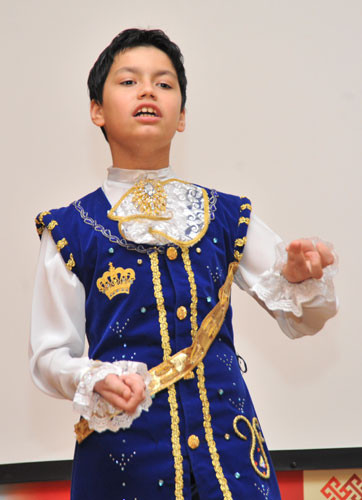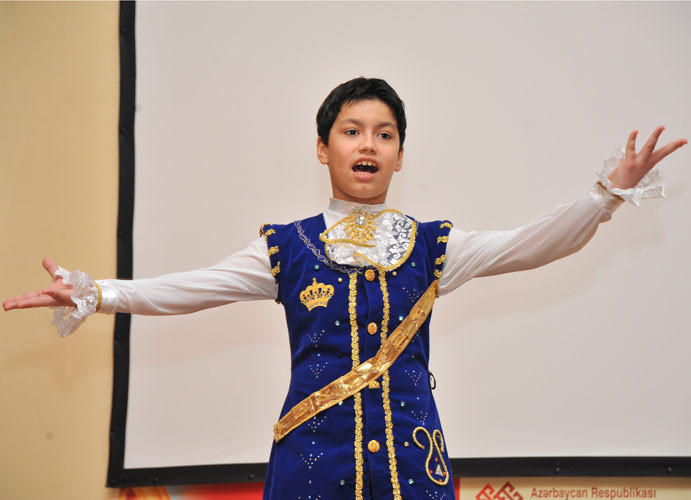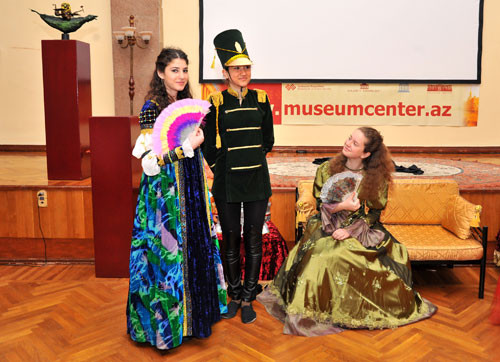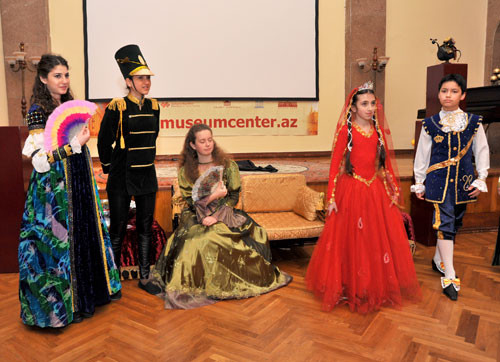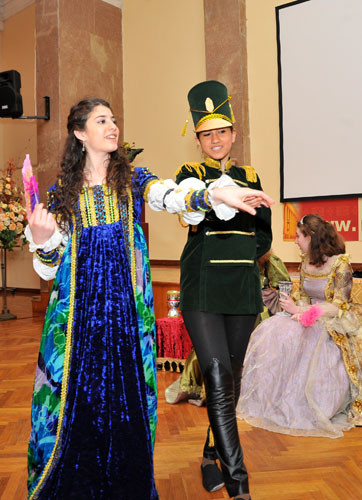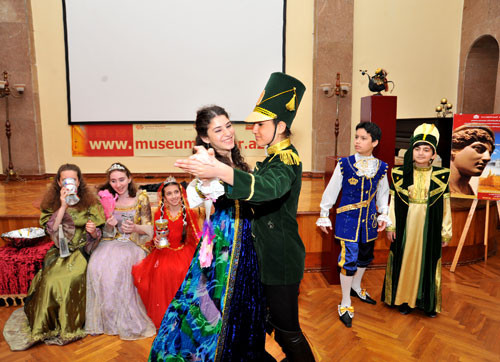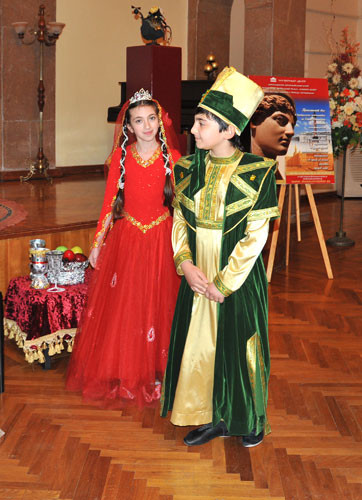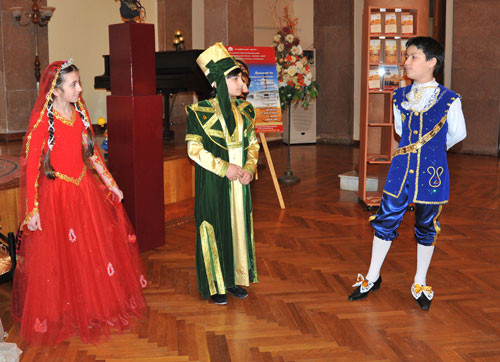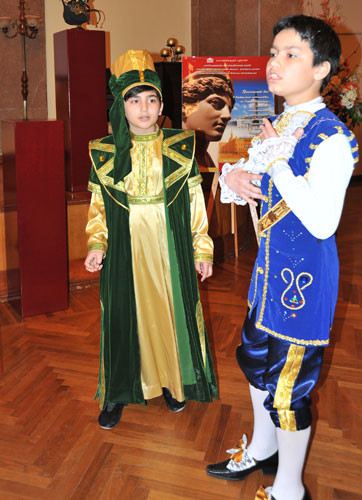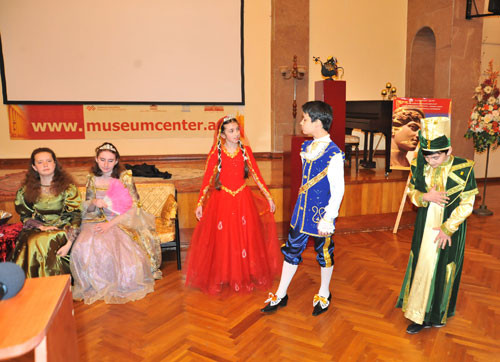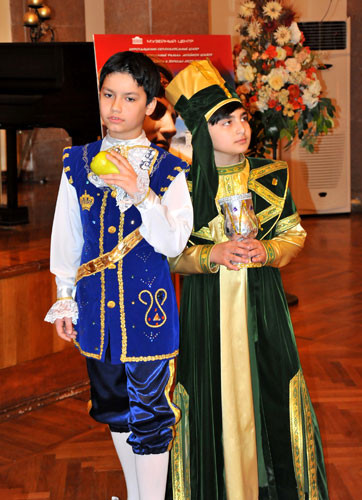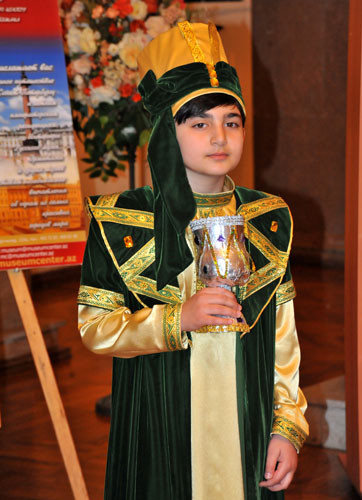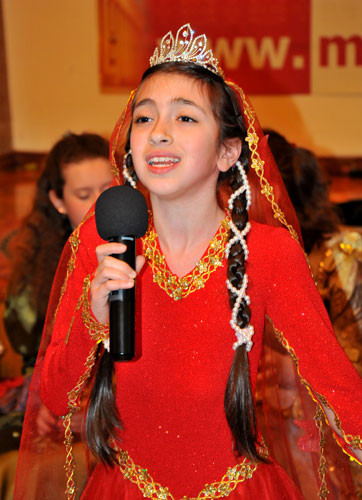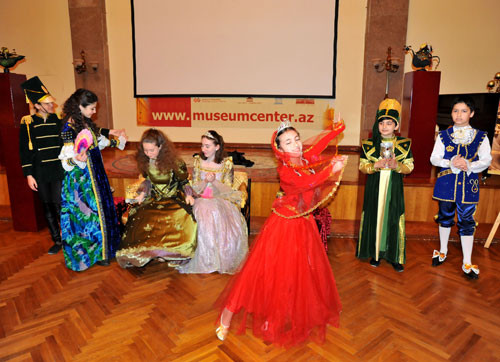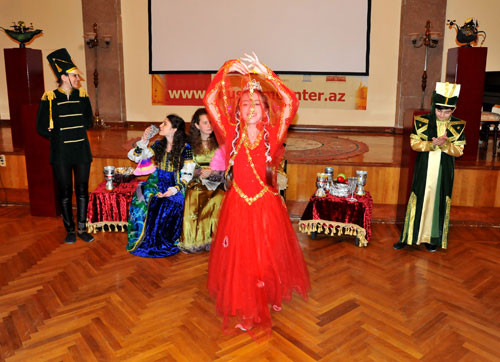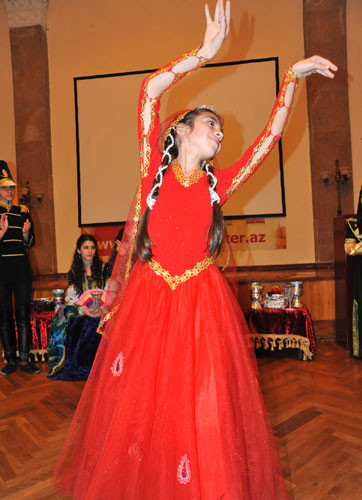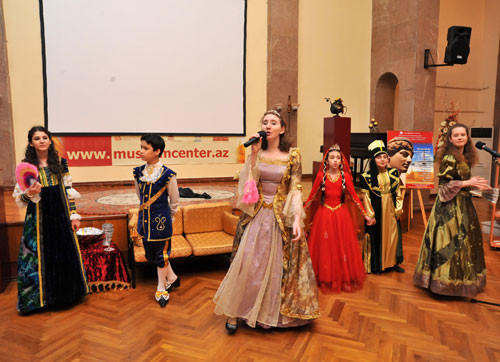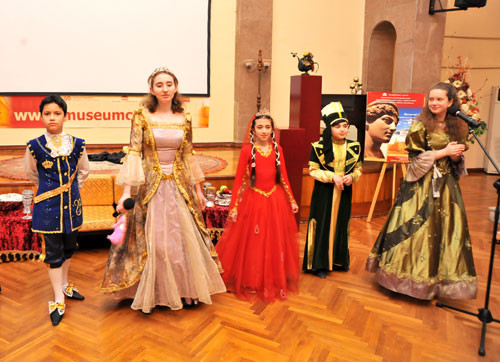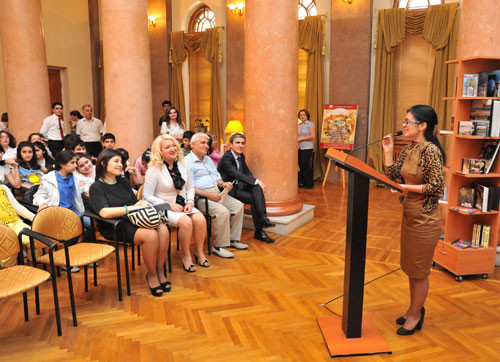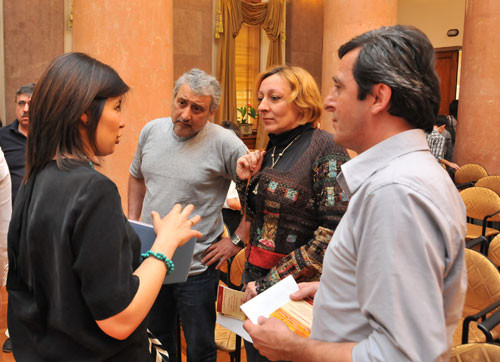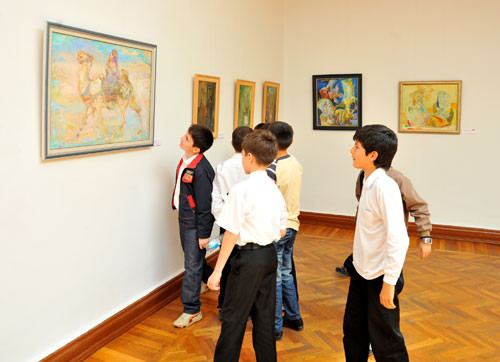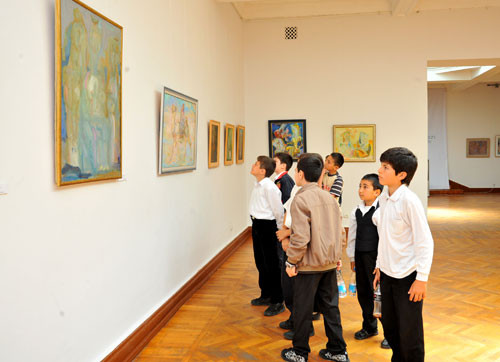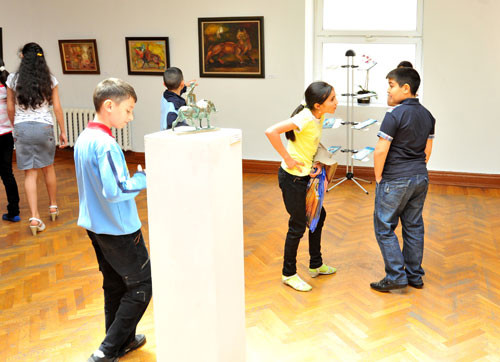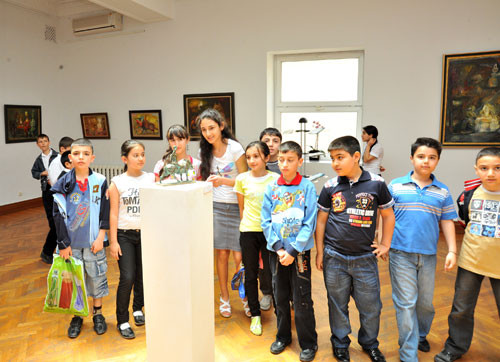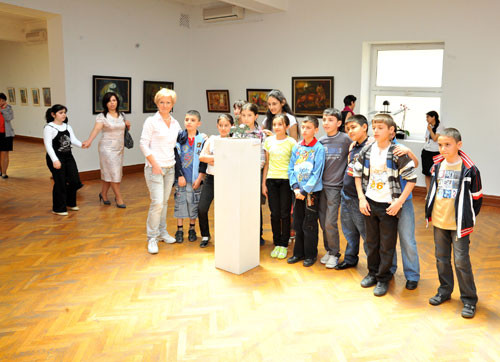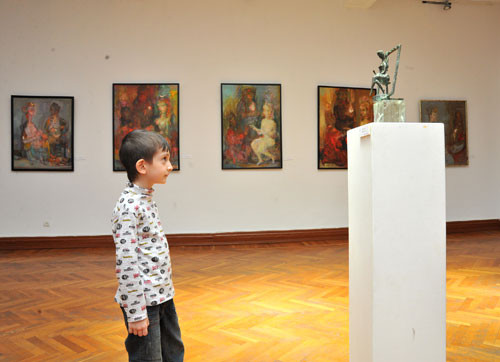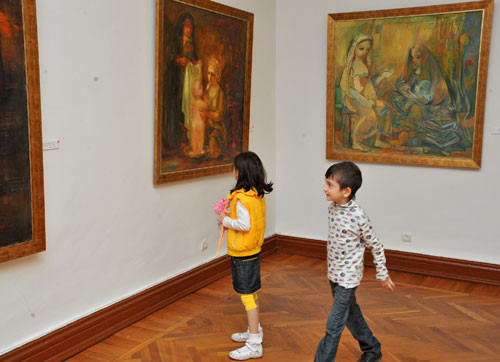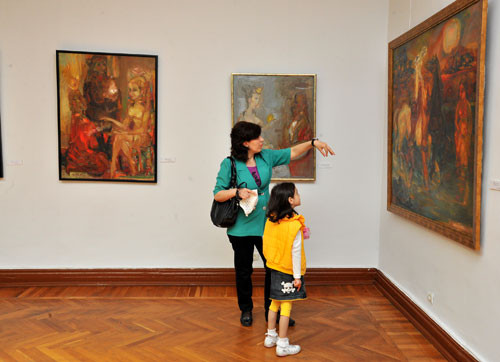Presentation of the museum-education programme for students and schoolchildren in the framework of the World Day for Cultural Diversity for Dialogue and Development
21.05.2011Assembly hall
Time: 12:00
Organizer: Museum Center, National Commission of Azerbaijan Republic for UNESCO, the UNO Office in Azerbaijan, the Russian Information and Cultural Center
On 21 May 2011 a presentation of the museum-educational programme was held in the Assembly hall of the Museum Centre of the Ministry of Culture and Tourism of Azerbaijan for students and schoolchildren of the information-education centre "Russian museum: Virtual branch". It is organized with the support of the Bureau of UNESCO in Moscow and the National Commission for UNESCO in Azerbaijan, dedicated to the World Day for Cultural Diversity for Dialogue and Development.
The World Day for Cultural Diversity for Dialogue and Development provides us with an opportunity to deepen our understanding of the values of cultural diversity and to learn to “live together” better.
In 2008 the UNESCO Bureau in Moscow and the Ministry of Culture and Tourism of Azerbaijan Republic created the information-education centre "Russian Museum: virtual branch" based at the Museum Centre in Baku. The capital of Azerbaijan was the first foreign capital to have a virtual branch of the Russian Museum. This event was witness to the huge interest remaining in Azerbaijan in Russian culture and art, and the aspiration to expand the cultural space and communication between two countries.
The next stage in the development of the project "Russian Museum: virtual branch" was the successful establishment of a website by the Museum Centre of the Ministry of Culture and Tourism of Azerbaijan in 2009 with the support of the UNESCO Bureau in Moscow, which represents not only Russian, but also Azerbaijani, culture abroad in virtual space and in three languages (Azerbaijan, Russian, English).
Over the last few years the UNESCO Bureau in Moscow, including the National Commission of the Republic of Azerbaijan for UNESCO affairs, has invariably supported, both conceptually and financially, the use and development of ICT in the information-education centre "Russian Museum: virtual branch".
Within the scope of the World Day for Cultural Diversity for Dialogue and Development the Museum Centre in Baku prepared a museum-educational programme for students and schoolchildren attending the information-education centre "Russian Museum: virtual branch". The programme is divided into two parts according to the themes covered and level of complexity: one of them was intended for a youth audience, the other for children.
The museum-educational programme for students and schoolchildren assumes cooperation of the Museum Centre with higher and secondary comprehensive educational institutions. The managements of these institutions are given the option to select a theme for the activity from the range offered (each activity lasts 1.5 - 2 hours). The themes include the architecture of Saint Petersburg as a whole and the palaces of the Russian Museum in particular, separate significant exhibits and whole thematic collections, the creativity of the artists of various epochs and the influence of the Russian school of fine arts and traditions on the art and culture of Azerbaijan.Various methods are used in conducting the activities – there are classical lectures with the presentation of slides, virtual walks in the halls of the museum, meetings with famous contemporary Azerbaijan artists and discussions about pictures. Practically all activities include interaction corresponding to the theme. It may be a practical activity, to create models or other elements of material culture with one's own hands. For example, with the help of a computer programme one can virtually build a park from an example of XVIII century, collect a virtual puzzle palace, cut out a board for gingerbread or paint a dish.
However, the majority of practical activities assume not virtual, but real creativity in the participants. So, the programmes include activities to create table models of palaces and parks from improvised materials, poster contests, master-classes in painting, clay toys and khokhloma (or gzhel) paintings.
Practical activities cover a wide range of culture, and are not limited to the fine arts. Some are devoted to literary creativity, such as writing essays after virtual visits to the exhibition, compositions on the theme of legends about the palaces of the Russian Museum or fairy tales about a chosen picture. One of the activities, devoted to masquerades, trains participants in ancient dances and the creation of fancy dress. Another activity is devoted to the search for family relics and the creation of a family exposition for the museum.
The realization of this project will serve to expand a single, whole, cultural-information space within the country and beyond its borders, and to the strengthening of communication between nations.
Executive Secretary of the National Commission for UNESCO in Azerbaijan Gunay Efendieva had speech and read the appeal of general director of UNESCO Ms Irina Bokova about World Day for Cultural Diversity for Dialogue and Development. Head of the Department of cooperation with international organizations and programmes of the Ministry of Culture and Tourism of Azerbaijan Vasif Eyvazzade and director of the Museum Center Liana Vazirova have brief greeting speeches at the presentation ceremony. Presentation of the programme was given by: a specialist in museum-education and interactive programmes Firuza Sultan-Zade and Samir Gasimov - director of the web studio MediaDesign. Interactive part of the educational programme was provided by children's theater "Gunay" under the directing of Larisa Tarusova (theme: "Masked balls in St Michael's - dance culture in Russia 19th century) and Parviz Huseynov (theme:"Dialogue of Cultures"- history of conceptual dolls).
At the presentation took part: mass media, directors and staff of museums, representatives of the Baku Slavic University, Baku Slavic Lyceum, the Western University, the Eurolyceum, Information Resource complex under the institute of foreign languages, secondary schools № 23, № 160 and other educational institutions, representatives of other public and state organizations in the sphere of culture and education and others.
